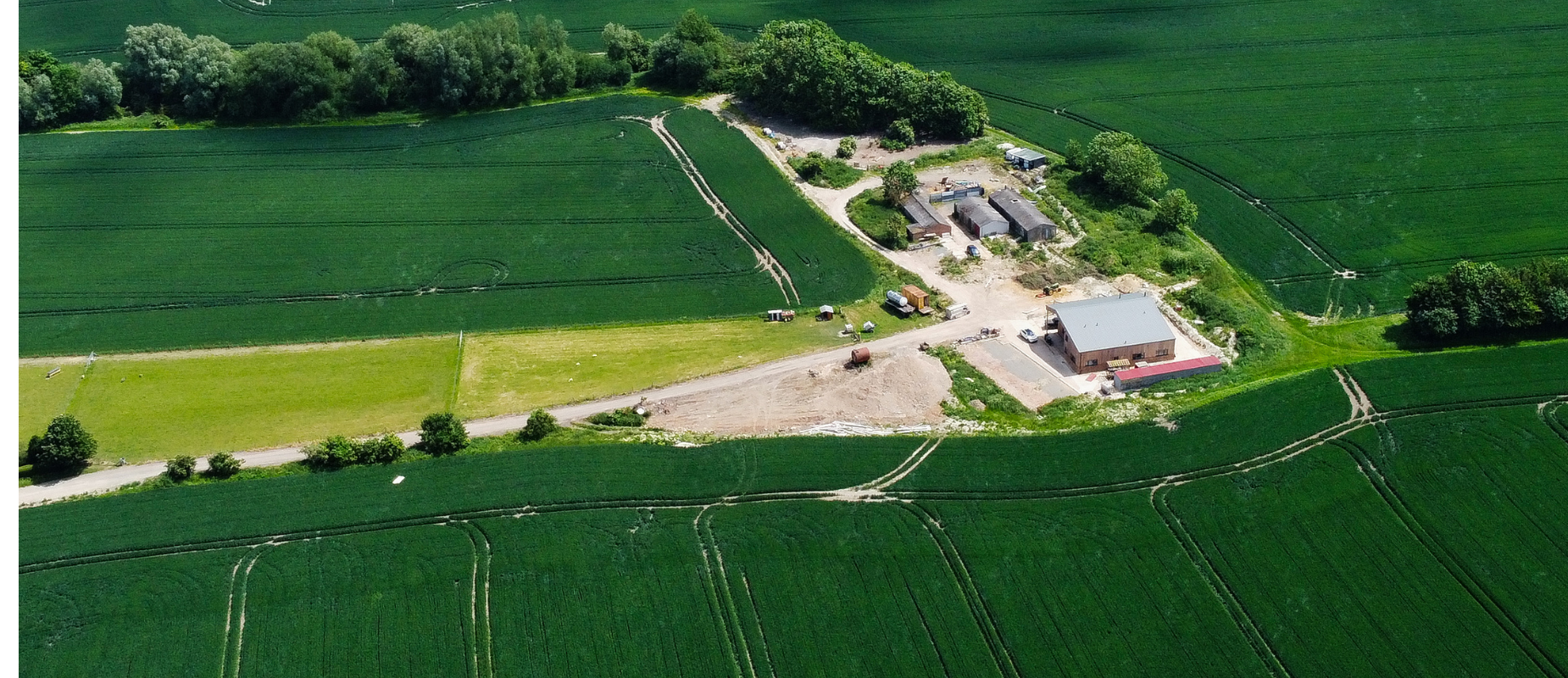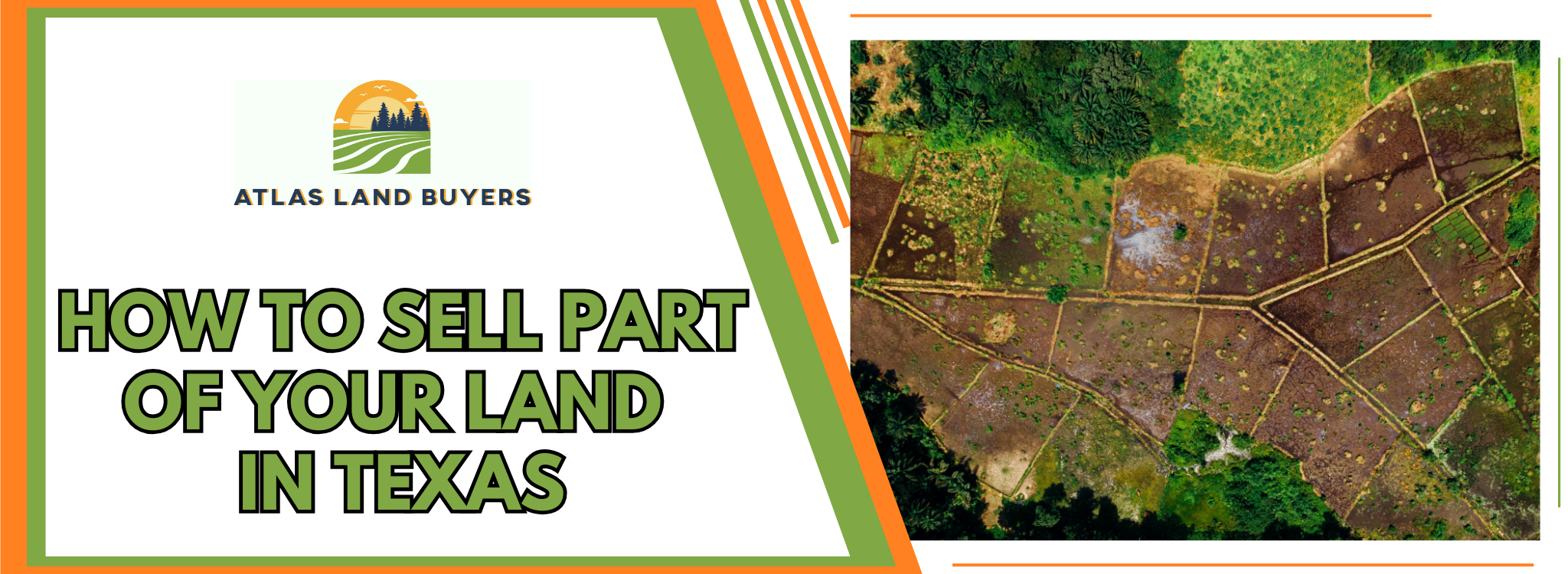
What Are the Key Steps to Selling Part of Your Land in Texas?
Selling a piece of your land in Texas involves several important steps. From getting ready to managing legal paperwork, knowing these steps can help make the process smooth and successful.
Preparation for Subdividing Land

Dividing your land requires careful planning and consideration.
How to Determine the Boundaries of Your Land?
Before selling, you need to know exactly your land’s boundaries. Here’s how:
- Hiring a surveyor: Find a licensed land surveyor to get a precise report on your property’s boundaries. This is essential for the sale.
- Reviewing a land survey: Make sure your survey includes a topographical map showing all Texas property boundaries.
- Verifying with a topographical map: Double-check that the surveyor’s findings match available geographical data.
Do You Need a Land Surveyor?
In Texas, you usually need a professional land surveyor to meet legal requirements:
- Mandatory surveys: Texas regulations often require a survey to finalize the sale.
- Professional and licensed: Always hire a licensed surveyor to work in your area.
- Ensuring accuracy: A professional survey reduces the risk of future disputes over land boundaries.
Legal Procedures and Documentation

Understanding legal documents is crucial when moving forward with your land sale.
What Legal Documents Are Required?
You’ll need several legal documents for a successful land sale:
- Purchase and sale agreement: This document outlines the terms of the deal.
- Deed of sale Texas: Transfers ownership from seller to buyer, often involving a warranty or title insurance in Texas.
- Contract for deed Texas: Consider alternative financing options if needed.
How Do Zoning Laws Affect the Sale Process?
Zoning laws in Texas can greatly impact your land sale:
- Understanding zoning laws: Review local regulations and ordinances to ensure your sale follows Texas zoning laws.
- Compliance with regulations: Get planning permission if necessary before proceeding.
- Local ordinances: Be mindful of specific restrictions that could affect the sale.

Navigating the Sale Process
Choosing how to handle the sale can affect how smoothly and successfully it goes.
Can You Handle the Sale Independently?
If you want to sell your land without an agent in Texas, think about the following:
- FSBO (For Sale By Owner): This option gives you more control over the sale.
- Private sale guidance: Learn from resources and tips to handle the sale independently.
- Owner responsibilities: Be ready for marketing, negotiations, and closing tasks.
By following these steps, you’ll be ready to sell part of your land in Texas effectively. For personalized advice or to start your property sale, contact experts like Atlas Land Buyers for professional help.
How Does Texas Property Law Impact Selling Land?
Understanding Property Rights
Selling land in Texas means knowing about property rights. These rights tell you who owns the land and where the boundaries are.
What Are Your Ownership Rights?
When you’re selling land, knowing your ownership rights is important. These include:
- Ownership: As the owner, you have a property deed. This document is needed to transfer ownership.
- Property Deed Transfer: This document helps move ownership from you to the buyer.
- Title Insurance in Texas: Protects against problems with the title and ensures a smooth sale.
You need to understand these elements to meet legal requirements for selling land in Texas.
Are There Any Easements on the Property?

Before you sell, check if there are any easements:
- Easements allow others to use part of your land for certain things.
- Property Boundaries in Texas: A clear survey ensures boundaries are correct and avoids disputes.
- Survey Requirements in Texas: A professional survey can find easements and confirm property lines.
Contractual Obligations and Agreements
Having the right contracts is key when selling land to protect both sides.
What Should Be Included in a Purchase Agreement?
A good purchase agreement should have:
- Purchase Agreement: Lists terms of sale, like price and conditions.
- Legal Documents: Includes the contract for deed and other papers.
- Contract for Deed in Texas: A way where the buyer pays the seller directly instead of using a bank.
Is a Title Search Necessary Before Selling?
Doing a title search is an important step:
- Title Search: Find any claims or liens, ensuring the title is clear.
- Legal Requirements for Selling Land: Follow all necessary steps to avoid issues.
- Property Deed Transfer: Makes sure the buyer gets a clear title.
Compliance with Local Regulations
You must follow local rules to avoid problems when selling land.
How Do Local Planning Permissions Affect the Sale?
Local planning permissions can affect your sales:
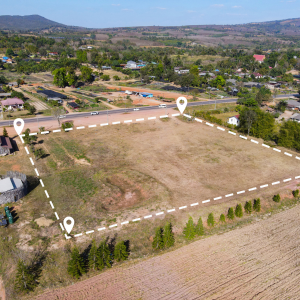
- Planning Permission: Certain changes to the land need to be made.
- Zoning Laws in Texas: Dictate what the land can be used for and affect value.
- Local Regulations: Make sure everything follows local laws.
What Environmental Concerns Should You Be Aware Of?
Do not ignore environmental rules:
- Environmental Concerns: Problems like contamination can lower value and make it hard to sell.
- Environmental Regulations in Texas: Control how natural resources are used.
- Compliance: Following these rules helps avoid penalties and ensures a smooth sale.
By understanding these complexities, Atlas Land Buyers can help guide you through a successful land sale in Texas. For personalized assistance, feel free to contact our experts.
What Financial Considerations Should You Keep in Mind?
Costs Involved in Selling Land
When selling land, you need to think about several expenses:
- Appraisal: An appraisal helps you determine how much your land is worth. This way, you can set a fair price.
- Closing Costs in Texas: These are fees for lawyer services and paperwork. Make sure you include these costs in your selling price.
- Legal Documents: You must have all the right legal papers ready to make the sale smoothly.
- Title Insurance in Texas protects the buyer by ensuring there are no legal problems with the land’s ownership.
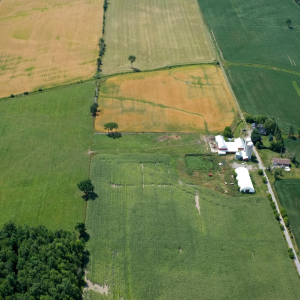
Tax Implications and Responsibilities
Knowing the tax impact when selling land is important:
- Capital Gains Tax: If your land has increased in value since you bought it, you might have to pay capital gains tax on the profit. This could lower what you take home from the sale.
- Texas Property Taxes: Make sure all property taxes are paid before selling. Buyers usually want proof that there are no unpaid taxes.
- Tax Implications of Land Sale: Talk to a tax expert to understand how selling your land will affect your taxes. They can tell you about any deductions or credits you might get.
Evaluating Offer and Closing the Deal
Here’s how to handle offers and finish the sale:
- Negotiation Tips for Land Sales: Be ready to discuss terms and prices. Knowing the market can help you negotiate better.
- Offers: Review each offer carefully. Consider the price, conditions, and buyer reliability.
- Closing Process: This includes signing the purchase agreement and checking everything is correct. Make sure all steps are completed for a smooth closing.
- Escrow Services in Texas: Escrow services ensure money and papers are handled right until the sale ends.
- Contract and Purchase Agreement: Your contract should be clear and legally sound. It sets out the terms of the sale and protects everyone involved.
Considering these financial factors, you’ll be in a good position to sell your land successfully with Atlas Land Buyers. For more information or questions, contact us today!
How to Market Part of Your Land for Sale?
Crafting an Effective Listing
How to Write a Compelling Property Description?
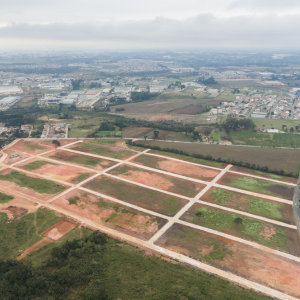
Writing a compelling property description is key to attracting buyers in the real estate market. Start by emphasizing unique features of the land, like its views or prime location. Use simple, engaging language that appeals to potential buyers and matches current market trends. Include keywords such as “real estate,” “listing,” and “attract buyers” to help make your property stand out.
What Information Should Be Highlighted in Your Listing?
When you create your listing, focus on sharing important information that highlights the property’s best attributes. Include details like lot size, zoning, accessibility, and nearby amenities. Also, relevant data, such as utility availability or development potential, should be provided to potential investors. This helps ensure they have all the necessary information at hand.
Enhancing Land Appeal

What Improvements Can Increase Land Value?
Consider making strategic improvements to raise your land’s value. Simple enhancements, such as clearing debris or adding landscaping, can significantly improve curb appeal. Focus on projects like installing fencing or bettering access roads to add value. These improvements make the property more appealing to potential buyers, increasing its marketability and overall worth.
How to Showcase Land Features to Attract Buyers?
To attract buyers, showcase your land’s features with a strong visual presentation. Use high-quality photos and videos to highlight selling points like scenic views, water access, or proximity to transportation hubs. Consider hosting virtual tours or using drone footage to give potential buyers a complete view of the land’s attributes. Highlighting these features can capture buyers’ attention and speed up the sale process.
How to Ensure a Smooth Transaction When Selling Land?
Selecting the Right Buyer
Picking the right buyer is key to a smooth transaction. Evaluate serious buyers by thoroughly vetting them and asking important questions. This helps you find buyers who are genuinely interested and ready to negotiate. Choosing a well-vetted buyer reduces potential issues later.
How to Vet Potential Buyers?
To effectively vet potential buyers, follow a clear process. Check their financial capacity to confirm they can afford the land. Look at their credentials and do a background check to ensure they are legitimate and committed to the purchase. This due diligence protects your interests.
What Questions Should You Ask Interested Parties?

When talking with interested parties, these questions can help determine their motivation and ability:
- What is your source of funding?
- When do you plan to close the deal?
- Do you have any specific requirements or conditions?
- What is your offer, and how flexible is it?
These questions help you assess their seriousness and make smart decisions.
Finalizing the Sale Legally
Finalizing the sale legally is important. Prepare a contract that details the transaction and closing costs. Consult a real estate attorney to make sure it’s legally binding. Compliance with legal standards ensures both parties are protected and facilitates a smooth transfer.
How to Prepare for the Final Walkthrough?
Preparing for the final walkthrough involves a thorough inspection. Use a checklist to verify the property’s condition and ensure buyer satisfaction. Confirm all agreements are met and address any necessary repairs. This step is key in meeting buyer expectations.
What Documents Are Needed at Closing?
The closing process requires certain documents:
- Deed: Transfers ownership to the buyer.
- Title: Confirms the seller’s rights to sell.
- Legal paperwork: Includes contracts and agreements.
- Closing statement: Details all financial transactions.
Ensure all documents are signed and verified by an escrow agent.
After-Sale Considerations

After the sale, take care of a few more tasks. Update records and notify relevant parties about the change in ownership. If needed, smoothly hand over property management responsibilities to avoid any issues.
What Happens After the Sale is Concluded?
Once the sale is done, complete all handover steps. Make sure payment is received and all documents are properly filed. Keep accurate records for future reference and handle any post-closing tasks.
How to Transition Ownership Smoothly?
Follow all necessary legal procedures for a smooth ownership transfer. Inform the new owner of their responsibilities and send out notifications promptly. A smooth process reduces potential problems and starts new ownership positively.
This information applies to Texas and its cities like Dallas, Fort Worth, Houston, and more. For help or questions, call us at (469) 564-8540. You can also visit our website at Atlas Land Buyers for more details.
FAQs:
How can I sell a portion of my land in Texas?
Selling part of your land in Texas involves several steps. First, check local zoning laws to see if you can divide your land. You may need planning permission. Make sure to get a survey done and mark the boundaries. Consider consulting a real estate lawyer or broker to ensure you handle legal requirements properly, like updating the land title and preparing documents such as a quitclaim deed.
What are the legal considerations when selling land in Texas?
When selling land in Texas, consider zoning laws, subdivision rules, and possible tax issues. Ensure you have all the permits needed, including planning and utilities. Check if there are any mortgages on the property. Consulting with a lawyer can help manage these details.
Can I sell just a section of my mortgaged land?
Yes, you can sell part of the mortgaged land, but you’ll need your lender’s permission. They might require you to pay down part of your mortgage. Talk to your lender and a legal advisor for help with this process.
What documents are needed to sell a portion of my property?
You’ll need documents like a land survey, proof of ownership, and a quitclaim deed. Also, make sure you have zoning clearance and planning permissions. It’s smart to work with a real estate professional or lawyer to ensure everything is correct.
How does the market differ for selling rural vs. urban land in Texas?
Rural and urban land markets in Texas are different. Rural land often attracts buyers interested in farming, hunting, or recreation. Urban land usually appeals to those looking for residential or commercial development. Knowing your land’s value and potential uses is important for marketing it effectively.
What should I consider when pricing my land for sale?
Look at local market trends, similar land sales, and legal requirements. Think about how the land is used for homes, farming, or business, as this affects price. A real estate professional can help you find the right pricing strategy.
Are there unique tax implications when selling land in Texas?
Yes, selling land in Texas can lead to tax issues, like capital gains taxes. The tax rate depends on how long you’ve owned the land and what it’s used for. Talking to a tax advisor can help you understand what taxes you might owe.
Do mineral rights affect selling my land in Texas?
In Texas, mineral rights can greatly impact land sales. If you own these rights, they add value, but buyers may want to negotiate them separately. Be clear about who holds the mineral rights before selling.
Key Insights
- To sell your Texas land, check the zoning rules and planning permissions needed in your area. To sell a part, ensure it fits local regulations for minimum lot sizes and subdivisions.
- Double-check border lines with a survey. Set up easements or rights-of-way to prevent neighbor disputes and ensure a smooth sale process.
- Look at similar properties to learn about your area’s market. Work with a licensed realtor to help attract buyers and guide you on pricing.
- Prepare your land by clearing it. Unique features like orchards, lakefronts, or hunting spots can boost its value.
- Manage legal documents like quitclaim deeds or land sale agreements. A lawyer can help ensure everything is legal and protects your interests.
- Before listing, handle utility access, mortgages, and tax issues. These can affect buyer interest and negotiation strategies.
- Use marketing options in Texas, like online land listing services, to reach more potential buyers and showcase your property well.
- To sell a portion of your land, understand what’s involved in legally transferring ownership.
- Point out extra assets like mineral or oil and gas rights that might attract certain buyers.
- Attract buyers by explaining the benefits of your land, whether it’s agricultural, residential, commercial, or vacant, and encouraging them to contact you for more details.
See More on How to Sell Your Texas Property

